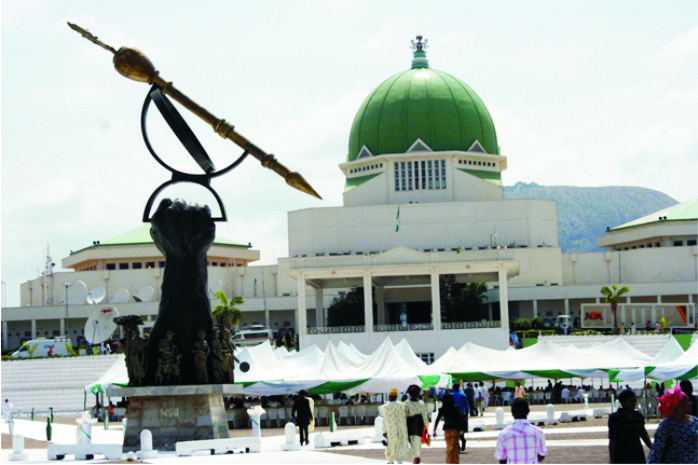Editorial
Fresh Call For National Unity

Fifty years after the Nigerian Civil War, which claimed well over 2.5 million lives, destroyed hundreds of thousands of properties, and rendered millions permanently maimed and traumatised in just about three years, principal actors, survivors, political leaders, historians, activists and other players in the Nigerian Project, last week, converged to provoke a sombre reflection, and warned against utterances and actions capable of triggering the disintegration of the country while advising that the catastrophe of the war years should serve as pivotal driving force for the promotion of peace, national reconciliation, cohesion and unity.
The warning was accentuated by diverse leaders across the nation from different professions, religious and ethnic orientations at the ‘Never Again Conference 2020’ organised by the Igbo think-tank, Nzuko Umunna and Ndigbo Lagos, in collaboration with civil society organisations. At the core of the conference was an x-ray of the major causes and consequences of the ill-fated Civil War and a critical appraisal of the present state of the nation which shows a seemingly dangerous replay of events in virtually all spheres of the Nigerian state.
Consequently, speaker after speaker noted that the complex dynamics, including heavily diverse cultures, tradition, religious affiliations and social backgrounds which have made it difficult for Nigerians to forge a strong, virile, progressive, peaceful and united nation, should be quickly harnessed, coalesced and weaved together in harmony to shut out any tendency to plunge the country into another Civil War. They regretted that the failure of Nigeria to move forward in peace and sustainable progress was because of the brazen disrespect of the majority and crass insistence of a minority group to foist its interests in the workings of the executive, legislative, judicial and even military and security superstructures without regard to the consequential violent implosion which such could unleash on the nation.
The leaders pointed at the various unfolding events of the last few years, including rising cases of abuse of power, outright impunity, looting of national treasury and assets, disregard for the rule of law and constitutionality, nepotism, tribalism, lack of compliance with the federal character principle, and targeted systemic violent attacks, killings and acts of war against people of other ethnic groups, and warned that the situation was capable of forcing the majority to fight back, thereby pushing the country into the brink of another civil war.
The Tide completely agrees that the songs of war, inciting, toxic and inflammatory attacks on people of other ethnic groups are heightening tension. We worry that violent attacks, killings, and kidnapping of people of certain tribes, religion and/or perceived to be of a given social status are taking a dangerous crescendo too. Even the deliberate government strategy to recruit and appoint people from a section of the country into virtually all critical sectors, agencies or departments at the federal level calls for concern.
We, therefore, caution harbingers of discord and war to remember the atrocities of the civil war and realise that so many things have changed and that the result of another potential war may never be the same. We say so because history tells us that no nation has ever survived two civil wars intact.
While we insist that the sovereignty and territorial integrity of Nigeria is non-negotiable, we appeal to all players to respect the expressed interests of others, and allow the divergent views to co-exist for the peace and unity of the nation. Indeed, the best way to bring this to life is to key into the urgency to restructure the country with the objective of giving the people a true and acceptable federal structure under which each federating unit would deploy its resources to conquer poverty amongst the people while the rich and the poor cohabit in harmony.
We believe that only a patriotic commitment to peaceful and united Nigeria would lead the present and future generations to a country with tolerant and inclusive political, economic, social and security systems for all. To achieve these, our leaders must entrench the core values of democratic principles and eschew ethnic, religious differences so that the country’s driving force can revert to the ideal: merit, hardwork, creativity and innovation.
For us, there is no better time to raise the alarm than now because the fabric of the Nigerian state has been threatened and weakened by years of degenerate government tactics aimed at marginalising and alienating the majority in governance, repression and deployment of brute force to crush opposition, glorification of injustice and inequality, and other antics that enhance division and incite people to hate.
This is why we urge leaders in various sectors to heed the lesson of the civil war and the clarion call to do everything within their powers to promote peaceful coexistence and national unity. This is a call to duty and a task for all Nigerians.
Editorial
Beyond Accessing Bonny By Road

Editorial
Time For GL 17 In Rivers

Editorial
For A Prosperous 2026

-

 Sports3 days ago
Sports3 days agoTinubu Lauds Super Eagles’ after AFCON bronze triumph
-

 Sports3 days ago
Sports3 days agoFulham Manager Eager To Receive Iwobi, Others
-

 Sports2 days ago
Sports2 days agoAFCON: Lookman gives Nigeria third place
-

 Sports3 days ago
Sports3 days ago“Mikel’s Influence Prevent Some Players Invitation To S’Eagles Camp”
-

 Sports3 days ago
Sports3 days agoMan of The Match award Excites Nwabali
-

 Niger Delta3 days ago
Niger Delta3 days agoINC Polls: Ogoriba Pledges To Continuously Stand For N’Delta Rights … Picks Presidential Form
-

 Editorial3 days ago
Editorial3 days agoBeyond Accessing Bonny By Road
-

 News3 days ago
News3 days agoSERAP Sues Govs, FCT Minister Over Security Vote Spending

